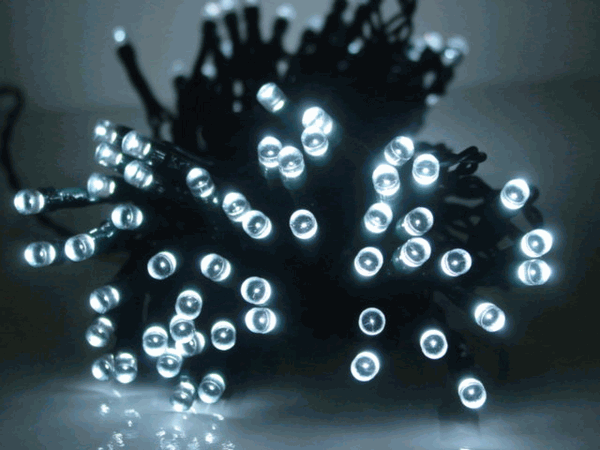
Many of those of us who decorate for Christmas well beyond a single indoor tree would like to decorate more than we do. Extensively decorated homes light up the neighborhood, create heavy traffic, and often end up on YouTube. When interviewed by local news organizations, those who have spent weeks and even months constructing their displays almost always mention how dramatically those displays increase their electric bills. Some of us also may have occasional twinges of guilt at our increased demand for electricity. Solar Christmas lights solve both of those problems.
Indoor Use
Solar Christmas lights may be less directly useful in indoor settings, simply because they often cannot receive enough light during daylight hours to power them at night. Solar lights still can be used indoors in areas that receive bright light for extended periods, however. The lights in the window of a sunny kitchen or living room can be solar powered, with the added benefit of not having to deal with extension cords or making practical accommodations for providing electrical supply.
Outdoor Use
It is outdoors that solar Christmas lights provide so much convenience. It is necessary to plan for electrical supply when using standard lights. This is not too much of an issue when exterior lights are limited to the eaves of the house or the home’s foundation plants. It gets more troublesome when decorating plants and fences located further from the house. The decorator must run several waterproof extension cords to where the lights are located. The cost of extension cords safe for outdoor use can be quite significant.
The people who create traffic jams in subdivisions and gain the attention of local news organizations often have to go beyond the simple extension cord to supply all of the electricity that their displays require. Solar Christmas lights solve the problem of delivering electricity at adequate levels that also are safe.
Solar lights can be placed anywhere, making them highly attractive for areas so far from the house that getting electricity to them is difficult. In states where laws permit it, dedicated decorators even can add some Christmas lights to the greenery decorating the grills of their cars. Drivers will need to check on that ahead of time, of course.
Other Benefits
Aside from the relief of avoiding higher electric bills during the season, using solar Christmas lights also eliminates the need to manually turn everything on and off before retiring for the night. The lights’ solar receptors collect solar energy throughout the day and then come on as darkness falls. Solar lights remain lit until they exhaust the supply of energy they collected during daylight, then they simply go out until daylight returns and they can recharge themselves. Not only do they not require any direct human input to turn them on and off, they also operate whether or not the family is home. If no one is available to turn on the display at dusk, the house and its display still are lit, bringing joy to those who view them.
Solar lights also eliminate any issue with overloaded electrical circuits. Because they place no demand on the home’s electrical system, they also enhance the safety of cheerful Christmastime light displays.
Matt Schwartz is an engineer and environmentalist who recommends using solar christmas lights.










Comments